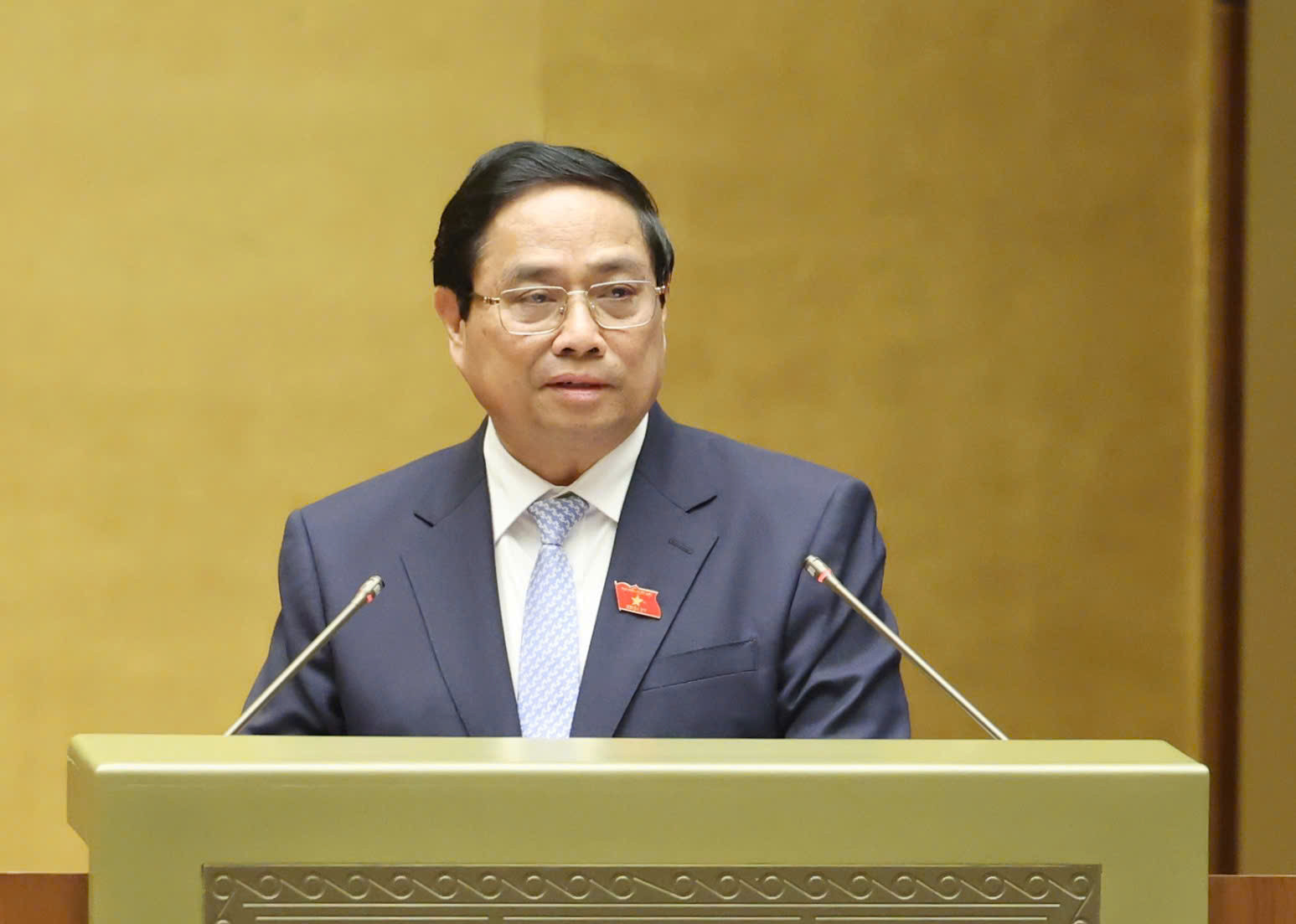
The Prime Minister emphasized that the global situation has been marked by unprecedented complexity and unpredictability since the beginning of the year. The U.S.'s sudden announcement of widespread and elevated retaliatory tariffs has had a negative impact on global economic growth, threatening international trade, investment flows, and supply chains.
The IMF has revised its global economic growth forecast for 2025 down to 2.8% (a 0.5% drop), while Fitch Ratings projects under 2% (down 0.4%), and S&P Global forecasts 2.2% (down 0.3%).
Amid these developments, Vietnam responded with calm and strategic coordination, implementing timely, flexible, and appropriate measures that have yielded initial positive results. Vietnam is among the first countries the U.S. has agreed to negotiate with.
Acting under the directives of the Politburo and General Secretary To Lam, the government and Prime Minister have been overseeing the negotiation delegation and relevant ministries, finalizing strategies for the talks under the principle of “shared risks - mutual benefits.”
Since early this year, Vietnamese leaders, ministries, and agencies have actively engaged through political, diplomatic, economic, defense, and security channels to push forward cooperation agreements, procurement contracts, and accelerate U.S. business investment projects in Vietnam.
The government also issued Decree No. 73 to reduce import tariffs on various goods prior to the U.S.'s announcement of its new tariff policy.
Immediately after the U.S. announced its retaliatory tariff plan on April 2, the General Secretary held a phone call and sent a letter to President Donald Trump. Deputy Prime Minister Ho Duc Phoc was appointed as the General Secretary’s special envoy to the U.S.
The Government Party Committee promptly reported the situation to the Politburo and the Secretariat, offering proposed solutions. The Prime Minister convened 10 meetings on negotiation strategies, issued multiple directives, and implemented support measures for affected businesses and workers.
To coordinate efforts, the Prime Minister established a task force on strengthening cooperation and adapting to U.S. policy shifts, headed by Deputy Prime Minister Bui Thanh Son. The task force has worked with Vietnamese diplomatic missions abroad, industry associations, and major exporters to the U.S.
After the U.S. agreed to postpone the implementation of its tariffs and launch negotiations with Vietnam, the Prime Minister formed a government-level negotiation team led by the Minister of Industry and Trade and instructed the team to develop a detailed negotiation plan.
Vietnam has now officially joined the group of six countries prioritized for negotiations by the U.S., alongside the United Kingdom, India, South Korea, Japan, and Indonesia, among more than 100 economies.
Outlining solutions, the Prime Minister stressed the need to closely monitor global and domestic developments, forecast trends proactively, and respond with timely, flexible policies - particularly regarding the new U.S. tariff policy. He emphasized the importance of effective implementation of tax and fee exemptions, reductions, and deferrals, along with extending and expanding the scope of these measures to support those affected.
Vietnam will complete its negotiation strategies based on the principles of safeguarding the nation's legitimate interests and promoting balanced, sustainable trade, while ensuring compliance with international commitments.
Additionally, a decree on strategic trade control will be swiftly issued, with enhanced monitoring of goods’ origins.
The Prime Minister also called for continued diversification of export markets, products, and supply chains; improving the quality and competitiveness of Vietnamese goods and services; and adapting effectively to changes in global economic dynamics. Prompt support measures will also be introduced to assist businesses and workers impacted by the U.S. tariff policy.
Tran Thuong